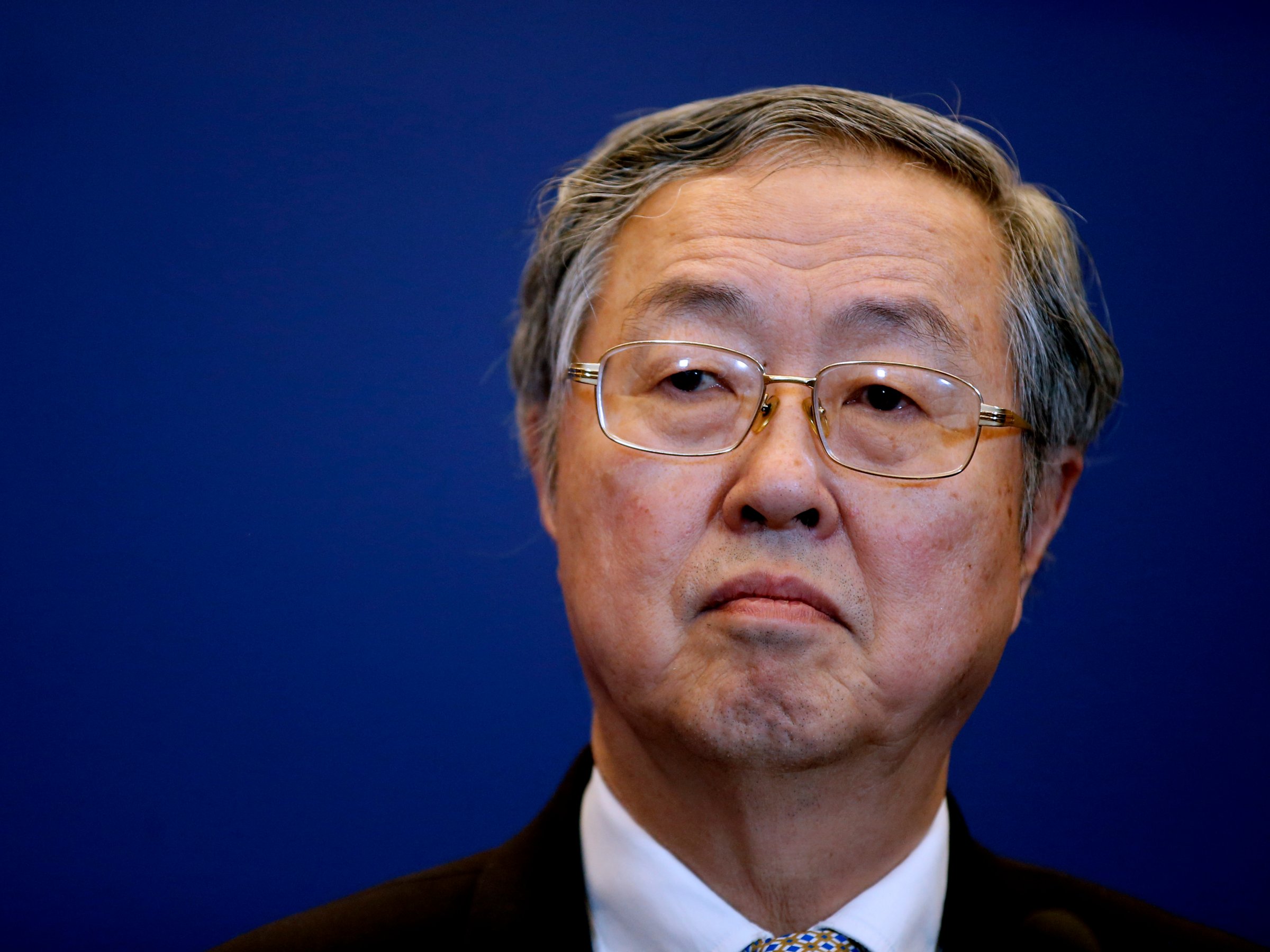 Zhou Xiaochuan, the governor of the People’s Bank of China.Jacky Naegelen/Reuters
Zhou Xiaochuan, the governor of the People’s Bank of China.Jacky Naegelen/Reuters
China reportedly told its banks to stop doing business with North Korea.
The People’s Bank of China, the country’s central bank, told banks to “strictly implement United Nations sanctions against North Korea,” four sources told Reuters.
Reuters added that banks were “told to stop providing financial services to new North Korean customers and to wind down loans with existing customers.”
The UN Security Council last week unanimously voted to levy a new round of economic sanctions in response to the country’s recent nuclear provocations.
Much attention has been paid to the commercial and financial ties between China and North Korea in recent months. Some have argued that the North Korean crisis could be “solved” if China applied economic pressure on the isolated government.
In the 2016 “US-Korea Yearbook,” published in the spring by the US-Korea Institute at the School of Advanced International Studies, Han May Chan, then a second-year student, briefly explained the argument that the success of economic sanctions might depend on China’s participation. Decades of sanctions have left other world powers with less sway over North Korea, she said:
“The DPRK has grown accustomed to the hostile sanctions regime for decades. Therefore, the effectiveness and the success of the current sanctions regime actually depends solely on China and North Korea. Unless the DPRK believes that the benefits from trade with the international community are greater than the current security benefits of prioritizing its military-first economy, North Korea will have little incentive to change its policy.”
Others, however, have questioned whether a strong response from China — and China joining North Korea’s adversaries — could lead to the conclusion desired by the US and the UN: the denuclearization of North Korea.
Of North Korea’s likely response should China turn against it, Jeffrey Lewis, the director of an East Asia program at the Middlebury Institute for International Studies, told The New York Times, “The last thing you would do in that situation is give up your independent nuclear capability.”
He added: “The one thing you hold that they have no control over. You would never give that up in that situation.”
The UN Security Council resolution, drafted by the US, aims to “cap North Korea’s oil imports, ban textile exports, end additional overseas laborer contracts, suppress smuggling efforts, stop joint ventures with other nations, and sanction designated North Korean government entities,” according to CNN.
China also previously announced a ban on imports of iron ore, iron, lead, coal, and seafood from North Korea.
Check out the full report at Reuters »













